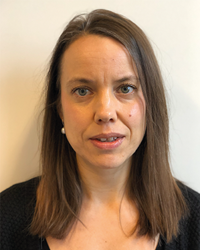Telemedicine for psoriasis patients
Psoriasis is a chronic, recurring inflammatory skin disorder, which affects two-four percent of the total population, and it can cause a wide range of other diseases. It is well-documented that psoriasis affects the quality of life negatively and is associated with both depression and anxiety.
PROJECT PERIOD
Start: 2018
End: 2021
It is estimated that as much as 40% of psoriasis patients are not complying with their treatment. Patients in biological treatment are better at following the treatment, but studies show that they are not satisfied with it. Psoriasis patients come from the entire Region of Southern Denmark for regular outpatient consultations at Odense University Hospital (OUH) every three months, which can be invasive in the everyday life of the individual patient.
The project was a qualitative study based on participatory design, which actively involves patients and health professionals in the design and development of the technological solution.
AIM
The aim of this PhD project was, in collaboration with patients and health professionals, to design and develop a technological solution for psoriasis patients undergoing biological treatment. The solution aimed to increase the quality of life and strengthen the patients’ empowerment and reduce inequality in health as a result of geographical distances.
The solution was to ensure both security and quality in the treatment and at the same time reduce the follow-up consultations at the hospital.
RESULTS
By using the approach participatory design involving both patients, health care professionals and researchers, the project developed an app to facilitate patient-centred care and to support patients in self-management.
The project was conducted in three phases:
- Identification of needs
- design and development
- test and evaluation
The app was designed to support patients at in-person visits and to replace in-person visits through the use of video consultations, aided by the feature “preparation before consultation”. The app was tested in a real clinical setting for a period of three months.
The test in clinical practice showed that the mHealth app could strengthen the relationship between patients and health care professionals and help patients to become more active in their care.
The project was a PhD project by Bettina Trettin. Visit her LinkedIn profile.
EXTERNAL FUNDING
The project was funded by Novartis, Kirsten Wehnert & Robert Wehnerts Fond, as well as by the University of Southern Denmark, OUH's Innovation Fund and the Department of Dermatology and Allergy Centre, OUH.

Bettina Trettin
MD, PhD
Odense University Hospital, Department of Dermatology and Allergy Centre
btrettin@health.sdu.dk
